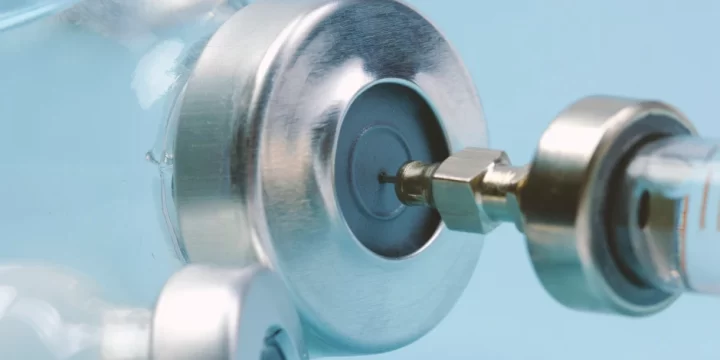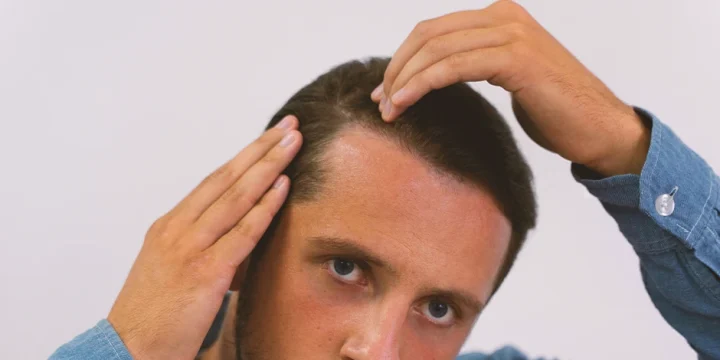Many of my fitness clients cringe when they hear “steroids” because the first image that pops into their heads is an Arnold Schwarzenegger-like physique.
The truth is that different steroids have valid uses, including corticosteroids for treating allergic rhinitis (hay fever). When used properly, they are safe treatment options.
In my journey from soccer to MMA, I've learned the importance of reliable information.
So, I consulted with medical experts and delved into peer-reviewed studies to bring you accurate insights on using steroids for seasonal allergies.
Quick Summary
Can Steroids Alleviate Allergies?
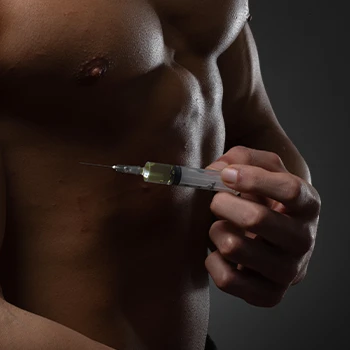
Yes, steroids can alleviate allergies by reducing inflammation and tamping down the immune system’s overreaction to the allergen [1].
While anabolic-androgenic steroids (AAS) treat diseases that damage muscle tissue and hormone issues, corticosteroids treat allergy symptoms and countless other chronic health problems.
Significant problems can arise when bodybuilders often misuse them when looking to make massive gains quickly.
Cortisol is produced in the adrenal glands and helps lessen inflammation in the body, among other things.
Corticosteroids are synthetic versions of the same.
Corticosteroids treat the swelling and inflammation caused by allergens like:
- Pollen from trees, grass, and weeds (hay fever)
- Dust mites
- Dog and cat dander
- Mold
- Wood dust
- Latex
The immune system reacts to the allergen and causes certain symptoms in the body, like sneezing, an itchy nose, watery eyes, coughing, red and itchy eyes, etc. [2].
Steroid Methods for Allergy Relief
There are several different methods of steroid treatment for these allergy symptoms.
Steroids are available as eye drops, ointments, injections, oral tablets, inhalers, and nasal sprays.
Let’s look closer at shots, nasal sprays, and tablets.
Steroid Shots
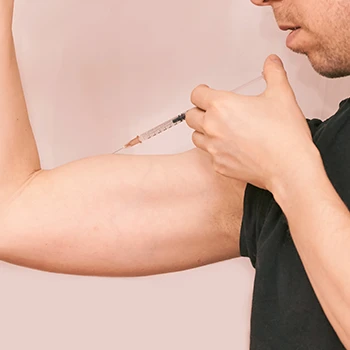
Steroid shots can effectively treat seasonal allergies as they slowly release the medication over weeks, providing long-term relief.
Steroid injections carry inherent risks, as once administered, the medication cannot be removed from the body in case of an allergic reaction or adverse side effects.
Additionally, these injections can lead to rare but serious complications, such as meningitis, which may arise from contaminated injections [3].
Yet, it is important to note that steroid shots differ from allergy shots.
According to the Mayo Clinic, allergy shots are a type of immunotherapy and do not contain steroids [4].
“Cortisol is a necessary hormone with important functions in your body, which include increasing blood sugar, reducing inflammation, suppressing the immune system, and aiding in nutrient metabolism.”
- Grant Tinsley, Ph.D., CSCS,*D, CISSN
Nasal Corticosteroids
Intranasal steroids, when combined with systemic corticosteroids, effectively treat allergic rhinitis and asthma, as supported by research in the Journal of Asthma and Allergy [5].
Nasal corticosteroids directly target the inflammation of the nasal passages, reducing inflammation and relieving congestion.
One of the most common adverse effects of nasal steroid use is irritation of the throat, according to the Mayo Clinic [6].
Yet, recent advancements include new formulations that offer improved efficacy with fewer side effects, per a 2019 study published in the Allergy and Asthma Proceedings journal [7].
Therefore, nasal steroids are safe, effective, and non-addictive, and it may take up to three weeks to feel the full effect [8].
Oral Corticosteroids
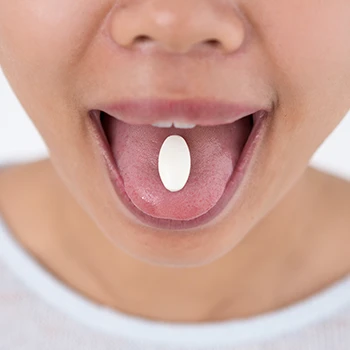
Drawing from my conversations with medical experts, I understand that oral steroids, unlike nasal steroids, may reduce inflammation body-wide, but this comes with a greater risk of adverse effects.
Still, they are not limited to treating only seasonal allergies.
They effectively treat various allergic reactions, including urticaria (hives), allergic atopic dermatitis, and eczema [9].
Prednisone is a commonly prescribed oral steroid.
Related Article: How Long Does It Take for Prednisone to Start Working?
Other Uses
Steroid injections can target smaller areas of the body to treat chronic conditions like rheumatoid arthritis, back pain, bursitis, gout, osteoarthritis, and tendonitis.
During my kickboxing training, I've seen peers use steroid injections to target specific areas for conditions like tendonitis and arthritis, highlighting their targeted effectiveness.
Oral steroids work to treat health conditions like rheumatoid arthritis, asthma, lupus, Crohn's disease, and ulcerative colitis.
Side Effects

As someone who's navigated various health challenges in sports, I always recommend consulting a doctor for managing seasonal allergies. Remember, steroid use can have serious side effects.
Nasal Steroids
Besides the throat irritation mentioned earlier, nasal steroid use can cause other side effects [10].
These include:
- Nose bleed
- Breathing difficulties
- Face swelling
- Nose sores
- Dizziness
- Eye pain
- Vision problems
- Headaches
Oral Steroids
With oral steroid use, there is an increased risk of serious side effects that comes with higher doses and long-term use [11].
Some common ones are:
- Anxiety
- Depression
- Water retention
- Vision problems
- Increased blood pressure
- Appetite changes
- Muscle weakness
- Weight gain
- Joint pain
- Immune system suppression
Taking corticosteroids, like prednisone, by oral route in high doses for long periods of time can cause Cushing syndrome [12].
Moreover, a study published in the Clujul journal suggests that prolonged use of these steroids can lead to noticeable changes in brain structure, particularly affecting memory and cognitive functions [13].
Steroid Injection
A steroid shot can bring the following side effects, which depend on dosing and where the injection is given [14].
- Pain and discomfort
- Thinning skin
- Temporary bruising
- Flushing of the face
- Infection causing redness, swelling, and pain (seek professional medical advice as soon as possible)
- Loss of fat at the injection site
- Paler skin at the injection site
- Increased blood sugar levels (if you have diabetes)
- Increased blood pressure (if you have high blood pressure)
FAQs
Are Antihistamines Better Than Steroids?
No. Studies show steroids are better than antihistamines for allergies when used on an “as needed” basis for individuals with mild disease.
A few studies, including one headed by Robert Naclerio, MD, Chief of Otolaryngology (head and neck surgery) at the University of Chicago, found that nasal steroids are more effective than antihistamines as the first-line treatment against allergies when used “as needed” [15].
How Long Do Steroids Take To Work for Allergies?
To work for allergies, it may take steroids up to two weeks to work.
It is essential to use steroids consistently, even when symptoms are not present, to get the medication's full benefit.
References:
- https://www.medicalnewstoday.com/articles/steroid-shot-for-allergies
- https://www.nhs.uk/conditions/allergic-rhinitis/
- https://www.ncbi.nlm.nih.gov/pmc/articles/PMC4401815/
- https://www.mayoclinic.org/tests-procedures/allergy-shots/about/pac-20392876
- https://www.ncbi.nlm.nih.gov/pmc/articles/PMC8436259/
- https://www.mayoclinic.org/drugs-supplements/corticosteroid-nasal-route/precautions/drg-20070513
- https://pubmed.ncbi.nlm.nih.gov/31248471/
- https://medlineplus.gov/ency/patientinstructions/000404.htm
- https://www.mayoclinic.org/drugs-supplements/prednisone-oral-route/description/drg-20075269
- https://www.mayoclinic.org/drugs-supplements/corticosteroid-nasal-route/side-effects/drg-20070513?p=1
- https://www.mayoclinic.org/steroids/art-20045692
- https://www.mayoclinic.org/diseases-conditions/cushing-syndrome/symptoms-causes/syc-20351310
- https://www.ncbi.nlm.nih.gov/pmc/articles/PMC4462413/
- https://www.nhs.uk/conditions/steroid-injections/
- https://www.sciencedaily.com/releases/2001/11/011127004650.htm
About The Author
You May Also Like


